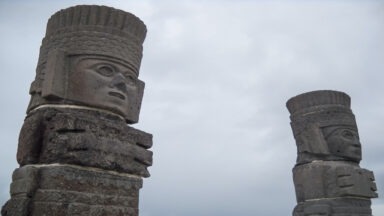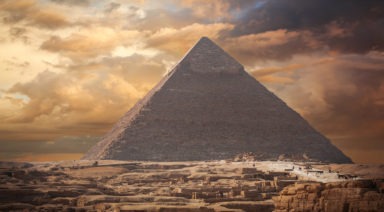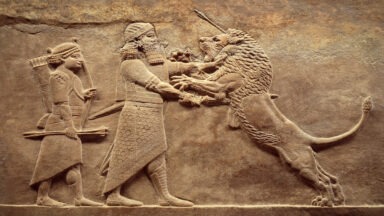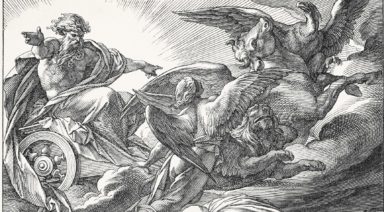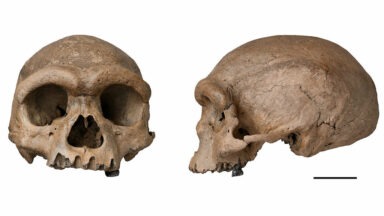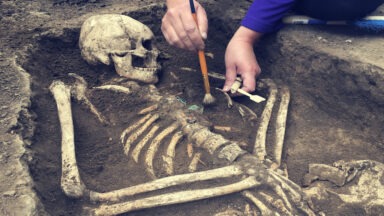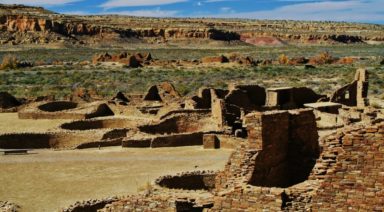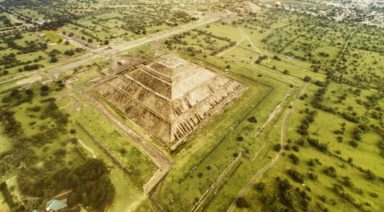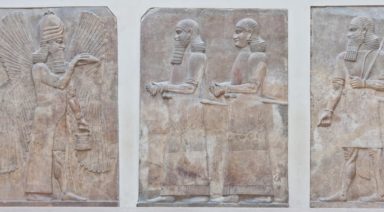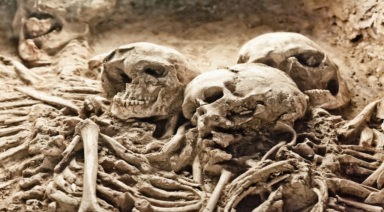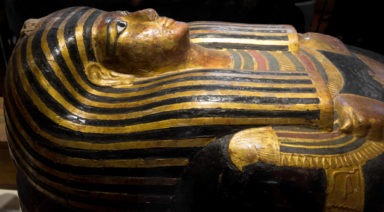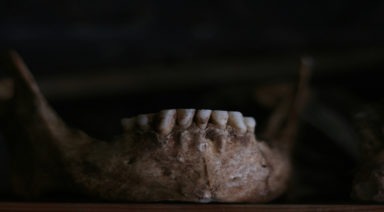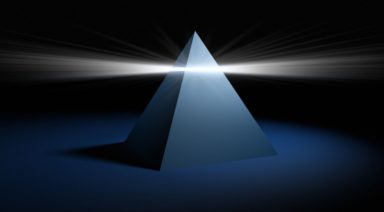Who Was the Sumerian God Enki?
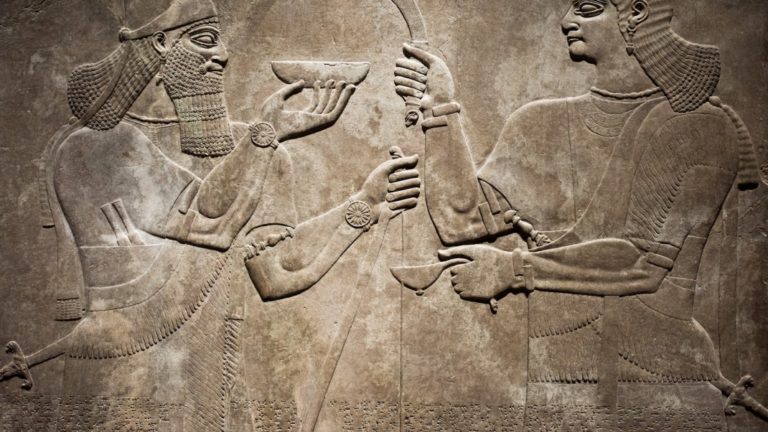
The Sumerians were noted for their worship of many gods. Among them was Enki, a god known for being the patron deity of the city of Eridu.
Enki is depicted in many pieces of Sumerian art and literature, including the Babylonian creation epic the Enuma Elish, The Epic of Gilgamesh, and others. Due to his prominence in such works, it is fair to assume he played a large role in Sumerian culture. Much about Enki remains shrouded in mystery, and begs further exploration.
The God Enki
Enki, a god known for his inherent worth, represented healing, fertility, and creation in Sumerian culture. His intelligent magic often included trickery to benefit the good of the human race.
Son of a sky god, Enki was thought to reign over the Earth and high heavens. As a leader of the Anunna gods in Sumeria, it is believed Enki inhabited the Earth nearly 400,000 years ago.
Enki’s Various Names
Enki was known by a variety of names, including Enkig, Ea, Nissiku, and Nudimmud. The names come with a variety of translations, such as “Prince,” “Lord of the Earth,” and “Creator.”
Gift of Fertility & Creation
In Sumerian culture, Enki is heavily connected to the concepts of fertility and creation. This is often represented by water.
Ancient images of Enki show rivers flowing from his masculine shoulders. The rivers depicted are thought to be the Euphrates and Tigris rivers that flow through Mesopotamia and signify his gift of fertility to the land. According to legend, the rivers were formed from his semen, which further supports his ties to the concept of fertility.
In addition, other symbols associated with Enki are the goat and the fish, which also signify fertility or fertileness.
One Sumerian lore depicts Enki as the founder of Eridu, possibly Mesopotamia’s first city, thus establishing the beginning of life on Earth. The spiritual site of Eridu has been compared to the Judeo-Christian concept of the Garden of Eden.
In addition to his contributions to creation, Enki is noted for his divine crafts and arts that represent spirituality. It is said he came to Earth to share knowledge of the afterlife with humans.
Link to the Annunaki
The Anunna or Anunnaki were beings of higher consciousness and advanced technology. According to legend, these gods or extraterrestrials came to Earth in search of gold. In one Babylonian story, the elder gods enjoyed a leisurely life while the younger gods worked away mining gold.
The intelligent yet mischievous Enki suggested the gods create other beings to mine the gold for them. The Annunaki were thought to be clone masters who sought to clone lesser beings, such as the human race, to do their work. Control of human beings is still thought to be happening under Annunaki gods today.
Although Enki contributed to the concept of cloning, which could be considered manipulation of the human race, he was well-intended and provided humans with information on how to restore balance to the Earth after devastating droughts and famine. Enki was drawn to forgiveness, compassion, and humanity.
Enki Family Lineage
Enki had a substantial cosmic family line. His immediate family included a father figure, mother, brother, wife, and four sons. An additional eight children were born later, as mentioned in a folk tale. The names and relations of Enki’s family members vary throughout ancient texts.
Sumerian mythology referred to Enki’s father as Anu, meaning “sky god,” while Babylonian text uses the name Apsu, defined as “primordial father.” Enki’s mother, Nammu, was a goddess from the highest heavens. She was depicted as the female force who gave birth to the heavens and the Earth.
Enki was the twin of Adad, a god of weather and storms. Enki had another brother Enlin, who was thought to be an adversary, often causing trouble for Enki to creatively repair.
Enki later married the goddess Ninhursag, who is also known by the names Ninmah, Damgalnuna, and Damkina. Together they had four sons: Asarluhi, god of magical knowledge; Enbhlulu, god of dikes and canals; Adapa, human sage; and Marduk, god of magical knowledge.
In the tale Enki and Ninhursag, it is said Enki and his wife had eight more children in an effort to cure Enki after he became seriously ill. The eight offspring with healing powers included:
- Abu – god of plants and growth
- Nintulla – god of precious metals
- Ninsitu – goddess of healing
- Ninkasi – goddess of beer
- Nanshe – goddess of divination, dream interpretation, social justice, and fertility
- Azimua – goddess of healing
- Emshag – god of fertility
- Ninti – goddess and giver of life
Power and Humanity
Enki was a very powerful god and had the assistance of mystical beings at his service. Legends describe an assortment of creatures such as mermaids, giants, and even demons that aided Enki in his earthly endeavors. Although he could call upon both destructive and caring existences, Enki favored humanity and social justice. He was known for his intelligence, wisdom, and gift for divine arts and crafts. Enki’s knowledge of rituals included exorcism as well as healing prayers and chants.
An important figure in mythological history, Enki remains one of the greatest Sumerian legends and one of the most complex Sumerian gods. As such, one can spend a significant amount of time delving into the history and mystery of Enki. Continue to explore this fascinating mythical being on your own, and enjoy the journey.
The Epic Showdown Between Atlantis and Lemuria

Since Plato first mentioned the existence of an ancient land that once served as the hub of a great civilization, people have been intrigued by Atlantis—an alleged civilization of advanced people who descended from the stars.
Through the centuries, researchers have not only been driven to find where Atlantis once existed, but also its connection to unseen forces, distant civilizations, and a seat of wisdom now buried beneath the ocean. Thanks to the memories of Matias De Stefano, an indigo child who remembers his past life in the Atlantean colony of Khem, we can take an even closer look at this lost civilization.
Matias reveals the real nature of Atlantis and its historical connection with the Mu people, a species whom he refers to as the Alithir. This civilization has also been referred to in history as the Lemurian civilization. Lemuria has been thought to be a lost continent of the Pacific that was once an exotic paradise. Lemuria is front and center in an epic confrontation with the ancient empire of Atlantis across the globe, having left a lingering impression upon our modern world, and even influencing the way we live today.
Approximately 50,000 years ago the Alithir, also called the Angels of the Sea, made their home in the Pacific, where billions of years ago, the moon crashed into the Earth, creating the massive crater. The crash opened a powerful portal on the planet and attracted otherworldly beings to settle on Earth.. That territory was within the area that triangulates Hawaii to the north, New Zealand to the west, and Easter Island to the east. From there, the Alithir settled four main portals in North America, South America, Australia, and Asia, where the four largest deserts on earth existed.
Matias says the main preoccupation of the Alithir was to work with our planet’s water to connect the vibrations of Earth and all beings as one consciousness. As more civilizations came through the portals, they set out to rule with different agendas. Early on, the Sirius people arrived to organize the Kundalini energy of the planet and raise the vibrations of all beings.


